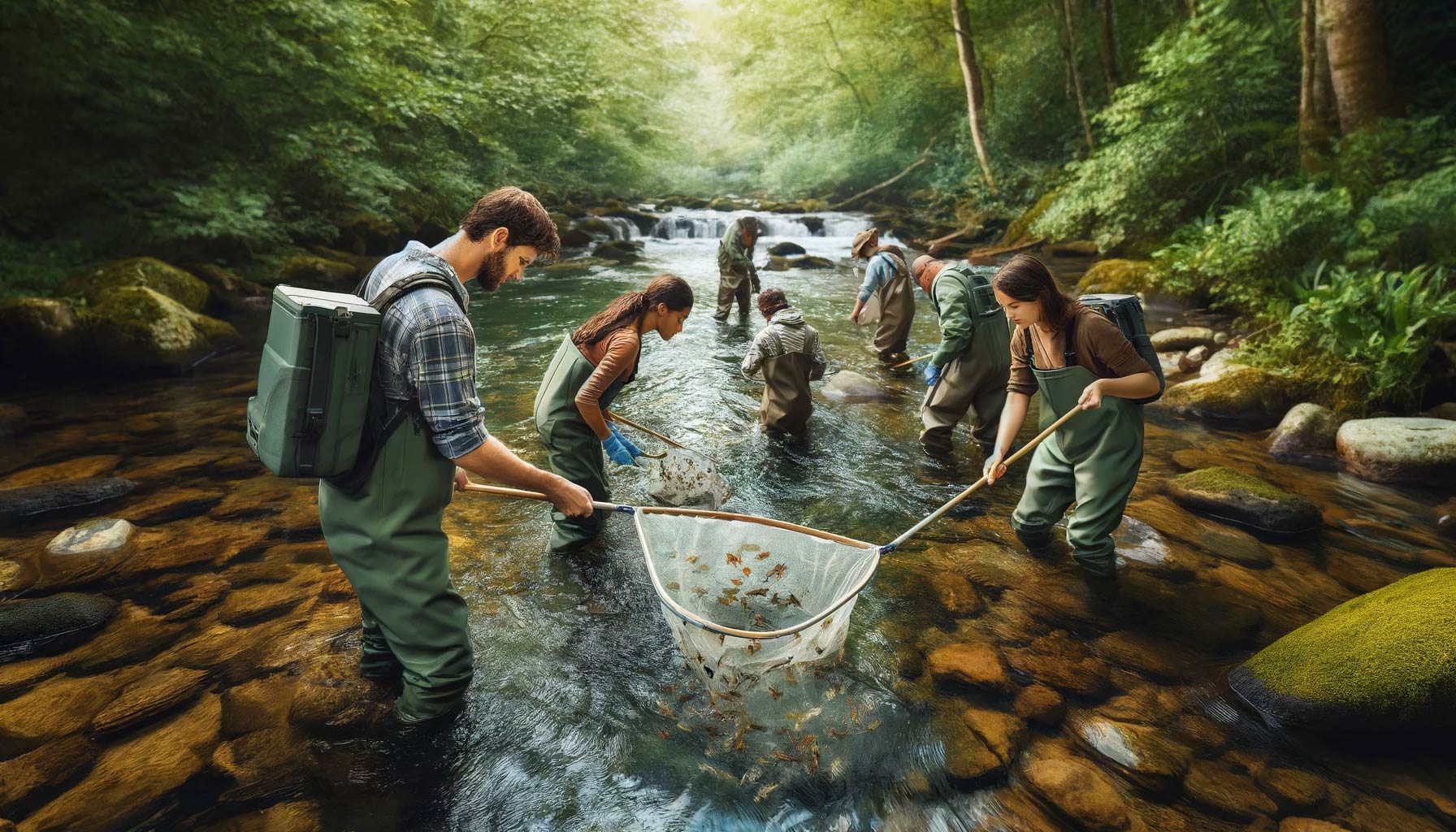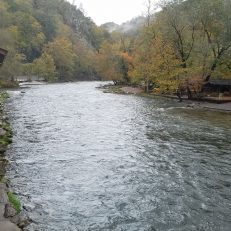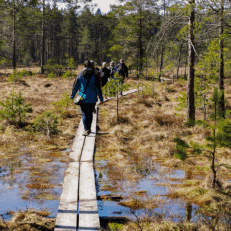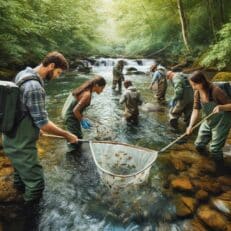Product Description
Mastering Macroinvertebrates: A Professional Workshop for Clean Water Act Jurisdictional Determinations
What the Course Includes:
- Comprehensive Lectures: Detailed sessions covering the fundamentals and advanced concepts of macroinvertebrate taxonomy.
- Field Trips: Guided fieldwork at diverse aquatic sites, providing real-world experience in sampling and identification.
- Laboratory Sessions: Access to professional-grade dissecting microscopes and identification guides for hands-on learning.
- Expert Instructors: Guidance from seasoned professionals with extensive experience in aquatic ecosystems and regulatory compliance.
- Course Materials: Receive comprehensive course materials, including identification keys, field guides, reading materials, and data sheets.
Why You Should Attend:
- Enhance Your Skills: Develop a deep understanding of macroinvertebrate identification, essential for accurate environmental assessments and regulatory compliance.
- Professional Growth: Equip yourself with practical skills that make you an invaluable asset to your organization and advance your career in environmental science.
- Hands-On Learning: Experience a balanced mix of theoretical knowledge and practical application, ensuring a thorough understanding of macroinvertebrate taxonomy and sampling techniques.
- Expert Guidance: Learn from industry experts who provide valuable insights and real-world applications of macroinvertebrate studies.
- Networking Opportunities: Connect with other professionals in the field, fostering collaborations and knowledge sharing.
Unlock the mysteries of stream and wetland ecosystems with our intensive three-day workshop designed for professionals involved in Clean Water Act jurisdictional determinations. Dive deep into the fascinating world of macroinvertebrates, learning essential taxonomy, field collection techniques, and laboratory identification skills. Join us for an engaging, hands-on experience that will enhance your expertise and elevate your environmental assessments.
Course Location :
Class/Lab: The Swamp School, Apex, North Carolina
Field Sites: Various Streams and Wetlands in the Raleigh Durham Area
Course Overview:
Day 1: Lecture on Macroinvertebrate Taxonomy
- Introduction to Macroinvertebrates: Understand the role of macroinvertebrates in aquatic ecosystems and their importance in environmental assessments.
- Taxonomic Classification: Learn the hierarchy of macroinvertebrate taxonomy from phylum to family.
- Identification Techniques: Get acquainted with the morphological features used to identify different macroinvertebrate families.
- Practical Examples: Review real-world examples and case studies to solidify your understanding.
Day 2: Field Collection and Identification
- Site Selection and Preparation: Learn how to select appropriate sampling sites and prepare for fieldwork.
- Field Equipment Use: Hands-on training with sampling equipment such as kick nets, D-nets, and Surber samplers.
- Sampling Techniques: Practice different sampling methods, including qualitative and quantitative approaches.
- Field Identification: Conduct on-site identification of macroinvertebrates using field guides and keys.
- Sample Preservation: Learn proper techniques for preserving samples for laboratory analysis, including the use of ethanol and labeling.
Day 3: Laboratory Identification and Data Analysis
- Microscope Training: Receive training on using dissecting microscopes for detailed examination of samples.
- Laboratory Identification: Identify collected macroinvertebrates to the family level using dichotomous keys and identification guides.
- Data Recording: Learn how to accurately record your findings and maintain organized data sheets.
- Data Analysis: Introduction to analyzing macroinvertebrate data for environmental assessments, including metrics such as diversity indices and pollution tolerance scores.
- Case Studies: Apply your skills to case studies, interpreting data to make informed decisions for Clean Water Act jurisdictional determinations, including the role of NPDES permits in monitoring and controlling water pollution.
Understanding the Clean Water Act
The Clean Water Act (CWA) is a cornerstone of environmental legislation in the United States, enacted in 1972 to regulate the discharge of pollutants into the nation’s waters. Its primary goal is to restore and maintain the chemical, physical, and biological integrity of our water bodies. The CWA sets national water quality standards and mandates that states develop their own standards to protect local waterways. A key component of the CWA is the National Pollutant Discharge Elimination System (NPDES) permit program, which controls point source discharges. Understanding the Clean Water Act is essential for maintaining compliance with federal regulations and ensuring the protection of our precious water resources.
Macroinvertebrate Identification and Ecology
Macroinvertebrates, including insects, crustaceans, and mollusks, are vital to the health of aquatic ecosystems. These organisms are excellent indicators of water quality, as their presence and diversity reflect the condition of their environment. In the context of the Clean Water Act, identifying and understanding macroinvertebrate communities is crucial. Local knowledge of these organisms can significantly inform Clean Water Act permitting decisions and help maintain compliance with water quality standards. By mastering macroinvertebrate identification and ecology, professionals can contribute to the broader goals of the Clean Water Act, ensuring clean and healthy water for all.
Case Studies and Group Exercises
Real-world application of the Clean Water Act is best understood through practical examples. In this section, participants will explore various case studies that illustrate how the CWA has been implemented in different contexts. Through group exercises, you will discover ways to apply the principles of the Clean Water Act to real-world scenarios. Utilizing the River Network’s Clean Water Act Owner’s Manual, participants will interpret and apply the Act, working collaboratively to develop and present their own case studies. This hands-on approach ensures a deeper understanding of the CWA and its practical applications.
Workshop Takeaways and Next Steps
By the end of this workshop, you will have a comprehensive understanding of the Clean Water Act and its applications. You will be equipped to identify key provisions of the Act, including water quality standards, permitting requirements, and enforcement mechanisms. Additionally, you will gain insights into how local knowledge and macroinvertebrate identification can inform Clean Water Act permitting decisions. The workshop will conclude with a discussion on next steps, focusing on how to maintain compliance with the Clean Water Act and influence decision-making at the state and tribal levels. Participants will receive a copy of the River Network’s Clean Water Act Owner’s Manual and other relevant materials to support their continued learning and advocacy efforts.






